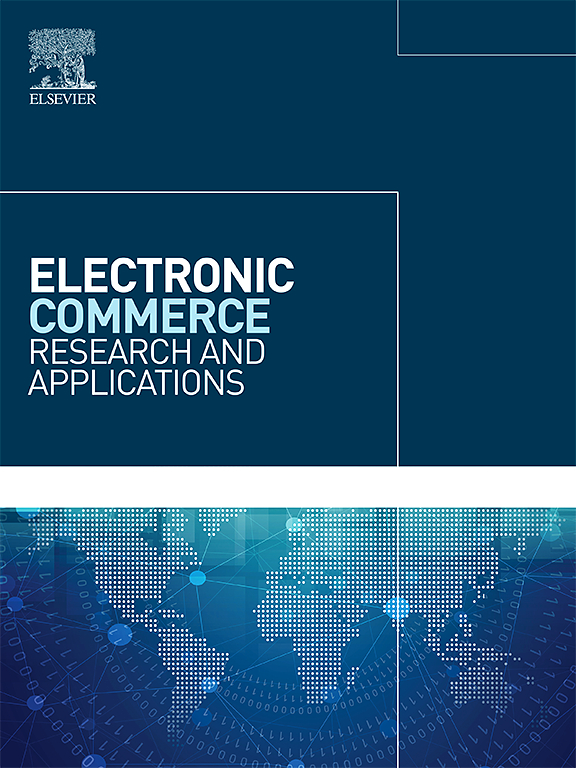Expert or partner: The matching effect of AI chatbot roles in different service contexts
IF 5.9
3区 管理学
Q1 BUSINESS
Electronic Commerce Research and Applications
Pub Date : 2025-03-17
DOI:10.1016/j.elerap.2025.101496
引用次数: 0
Abstract
Anthropomorphizing AI chatbots has become a widely adopted strategy to enhance customer-chatbot interactions. However, prior research has largely overlooked the role of social anthropomorphism, particularly how assigning different social roles to AI chatbots influences customer acceptance. To address this gap, this research investigates the impact of specific social roles across various service contexts on customer acceptance and the mechanisms underlying this effect. Through four experimental studies conducted in both field and laboratory settings, the findings consistently reveal a significant matching effect between AI chatbot roles and service contexts on customer acceptance, as well as the mediating roles of perceived competence and perceived warmth. Specifically, in utilitarian-dominant services, customers preferred expert (vs. partner) chatbots because they were perceived as more competent. Conversely, in hedonic-dominant services, customers favored partner (vs. expert) chatbots because they were perceived as warmer. These findings contribute to the understanding of customer acceptance of AI chatbots by highlighting the influence of various AI roles in different service contexts, and offer practical implications for companies to enhance the effectiveness of AI chatbots through role-matching strategies.
专家或合作伙伴:AI聊天机器人角色在不同服务环境中的匹配效果
拟人化人工智能聊天机器人已经成为一种广泛采用的增强客户与聊天机器人互动的策略。然而,之前的研究在很大程度上忽视了社会拟人化的作用,特别是为人工智能聊天机器人分配不同的社会角色如何影响客户接受度。为了解决这一差距,本研究调查了不同服务背景下特定社会角色对客户接受度的影响以及这种影响的机制。通过在现场和实验室环境中进行的四项实验研究,研究结果一致揭示了人工智能聊天机器人角色和服务环境对客户接受程度的显著匹配效应,以及感知能力和感知温暖的中介作用。具体来说,在功利主义主导的服务中,客户更喜欢专家(而不是合作伙伴)聊天机器人,因为他们认为专家更有能力。相反,在以享乐为主导的服务中,客户更喜欢合作伙伴(而不是专家)聊天机器人,因为他们觉得他们更热情。这些发现有助于理解客户对人工智能聊天机器人的接受程度,强调了不同人工智能角色在不同服务环境中的影响,并为企业通过角色匹配策略提高人工智能聊天机器人的有效性提供了实际意义。
本文章由计算机程序翻译,如有差异,请以英文原文为准。
求助全文
约1分钟内获得全文
求助全文
来源期刊

Electronic Commerce Research and Applications
工程技术-计算机:跨学科应用
CiteScore
10.10
自引率
8.30%
发文量
97
审稿时长
63 days
期刊介绍:
Electronic Commerce Research and Applications aims to create and disseminate enduring knowledge for the fast-changing e-commerce environment. A major dilemma in e-commerce research is how to achieve a balance between the currency and the life span of knowledge.
Electronic Commerce Research and Applications will contribute to the establishment of a research community to create the knowledge, technology, theory, and applications for the development of electronic commerce. This is targeted at the intersection of technological potential and business aims.
 求助内容:
求助内容: 应助结果提醒方式:
应助结果提醒方式:


